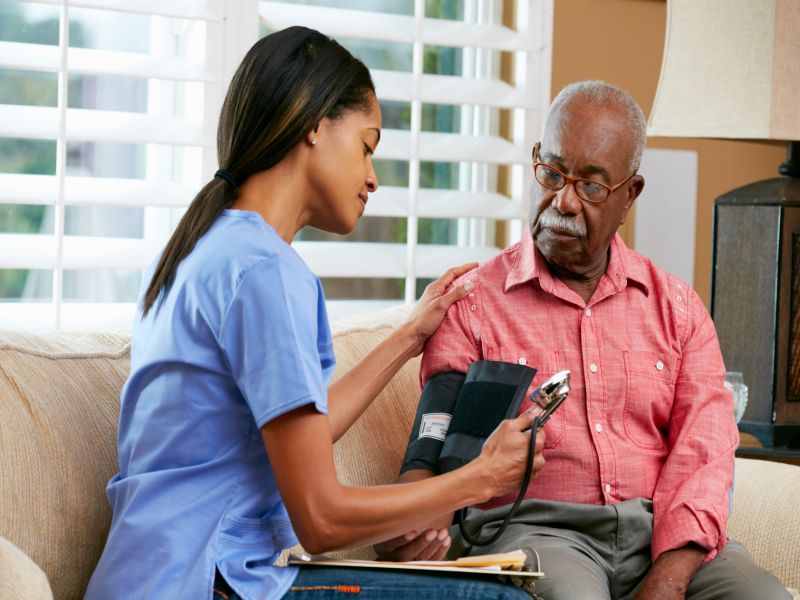
Most black people in the United States who struggle with sleep apnea or insomnia don’t get their sleep disorder diagnosed, a new analysis suggests.
“African Americans experience a disproportionate burden of numerous health problems, including obesity, diabetes, hypertension and cardiovascular disease, all of which have been shown to be associated with sleep [problems],” said study author Dayna Johnson, a postdoctoral research fellow at Brigham and Women’s Hospital and Harvard Medical School.
“It seems plausible that sleep apnea and insomnia are important risk factors contributing to these health disparities,” she added. But what isn’t yet clear from this study is why so few black people are getting diagnosed with these sleep disorders.
The study looked at sleep status among 825 black men and women. All were participants in a larger study on heart health funded by the U.S. National Institutes of Health.
Three in four of the study participants had some degree of sleep apnea. Yet only 2 percent said their condition had been diagnosed. Sleep apnea is a disorder that causes people to stop breathing for short periods of time, multiple times per evening. Symptoms include loud snoring, often with choking or gasping sounds, and periods of no noise because the person stopped breathing, according to the U.S. National Heart, Lung, and Blood Institute.
One in five black people in the study had insomnia. But less than 7 percent had been diagnosed. Insomnia is a sleep disorder that makes it difficult to fall or stay asleep.
The findings are to be presented Monday at the American Thoracic Society (ATS) meeting in Washington, D.C. Study results presented at meetings are usually considered preliminary until they’ve been published in a peer-reviewed journal.
“There is a disturbingly high prevalence of undiagnosed sleep disorders in our study population of African Americans,” Johnson said in an ATS news release.
“It is important to investigate the reasons for this high prevalence as well as investigate interventions targeted at increasing awareness and screening for sleep disorders, she added.”
More information
Visit the National Sleep Foundation for more on sleep disorders.
Source: HealthDay

Leave a Reply